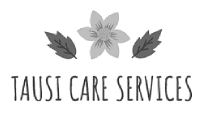What is Brand Identity?
Brand identity encompasses everything that makes your business unique and memorable to your audience. It includes your overall brand reputation including visual elements like logos, colours, and design, as well as your messaging, values, and the overall experience you offer. For NDIS providers, establishing a strong brand identity is essential for building trust and credibility within the community you serve.
Key Elements of Brand Identity:
- Mission and Values: Clearly define your mission and values, aligning them with the principles of the NDIS. Communicate your commitment to providing quality care and support for people with disabilities.
- Visual Identity: Develop a visually appealing and consistent brand identity with a professional logo, colour scheme, and design elements that reflect your values and resonate with your target audience.
- Voice and Tone: Define your brand’s voice and tone – whether it’s friendly and approachable or professional and authoritative. Consistency in communication builds trust and familiarity with your audience.
- Customer Experience: Every interaction with your business shapes your brand perception. Provide exceptional customer service and create positive experiences at every touchpoint.
- Differentiation: Identify what sets you apart from other NDIS providers. Whether it’s specialised services, innovative approaches, or a unique philosophy, highlight your unique selling points to attract clients.
How to market your NDIS business?
After you’ve established a compelling brand identity, the time comes to market your NDIS business effectively. Here are some strategies to consider:
Content Marketing: Create informative and engaging content that showcases your expertise and addresses the needs of your target audience. Blog posts, articles, videos, and social media posts can help position your business as a trusted resource in the NDIS community.
Social Media Presence: Utilise social media platforms to connect with your audience, share valuable content, and engage in meaningful conversations. Use relevant hashtags and join NDIS-related groups and communities to expand your reach.
Search Engine Optimization (SEO): Optimise your website and online content with relevant keywords such as “NDIS registration,” “NDIS provider,” and “NDIS business” to improve your visibility in search engine results. Focus on local SEO to attract clients in your area.
Community Engagement: Build relationships with local disability organisations, support groups, and healthcare professionals. Connecting with the community helps you enhance your brand value. Participate in community events, workshops, and seminars to raise awareness about your services and foster trust within the community.
Client Testimonials and Reviews: Encourage satisfied clients to share their experiences and feedback. Positive testimonials and reviews can significantly influence potential clients’ decision-making process and enhance your credibility as an NDIS provider.
Collaborations and Partnerships: Explore opportunities for collaborations with other businesses, organisations, or influencers in the disability sector. Collaborative projects or partnerships can help you reach new audiences and strengthen your brand presence.
Consistent Brand Messaging: Ensure consistency in your brand messaging across all channels and touchpoints. From your website content to your social media posts and promotional materials, maintain a cohesive brand identity to reinforce your brand image.
Why to Market your NDIS business?
Increasing Visibility: Effective marketing ensures that your NDIS business is visible to potential clients, caregivers, and healthcare professionals. It helps you stand out in a crowded marketplace and reach those who may benefit from your services.
Building Trust and Reputation: Through marketing, you can establish your business as a trustworthy and reliable provider within the NDIS community. Consistent messaging and positive interactions help build a solid reputation, essential for gaining the trust of clients and stakeholders.
Educating the Community: Marketing allows you to educate the community about the NDIS framework, available services, and how your business can support individuals with disabilities. By raising awareness and providing valuable information, you empower people to access the assistance they need.
Attracting Clients: Effective marketing strategies attract clients by highlighting the unique benefits and features of your services. By showcasing your expertise and understanding of clients’ needs, you can persuade them to choose your business over competitors.
Driving Growth and Sustainability: Marketing efforts drive business growth by attracting new clients and retaining existing ones. A well-executed marketing plan can lead to increased revenue, expansion opportunities, and long-term sustainability for your NDIS business.
Advocating for the NDIS: Marketing your business contributes to broader advocacy efforts for the NDIS and disability rights. By promoting awareness and understanding of the NDIS framework, you help advocate for inclusive policies and support systems for individuals with disabilities.
In summary, marketing your NDIS business is essential for increasing visibility, building trust, educating the community, attracting clients, driving growth, and advocating for the NDIS. By investing in strategic marketing initiatives, you can make a positive impact on the lives of individuals with disabilities while growing your business sustainably.
Building a strong brand identity is required for successfully marketing your NDIS business. By defining your brand values, creating a distinctive visual identity, and implementing effective marketing strategies, you can attract clients, build trust, and establish your business as a reputable NDIS provider. Stay true to your brand and consistently deliver exceptional experiences to foster long-term relationships with your clients and the broader disability community. Join EnableUs for successful,reliable and organic marketing of your brand.



























